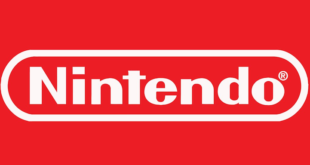The gaming industry is hub for creative ideas and concepts, many of which are reflected in the continuous stream of products which these highly-competitive businesses develop.
Source code, graphics and sound clips, to name but a few such components, can consequently be of real commercial value to a business and it is therefore crucial that developers understand the intellectual property (“IP”) rights underpinning these assets. This article outlines the main IP rights that are relevant to gaming and how they can be protected.
Patents
A patent can be obtained for inventions which are new, involve an inventive step and are capable of industrial application.
Whilst computer programs per se are excluded from protection, it is possible to obtain protection for some aspects of gameplay. For example, in-gaming directions (Crazy Taxi) and proximity-based character attack/defence strength calculation (Dynasty Warriors).
Patents are a complex area and procedures vary between the UK and the US, so if you think you may gave a patentable invention it is best to seek advice from a qualified patent attorney or IP solicitor.
Trademarks
Business and brand names can be protected by registering the names or logos as trademarks, and it is generally advisable for any business to take the relatively simple steps to do this.
Registration can prevent others using the same or similar mark for identical or similar goods and services for a renewable period of 10 years. Owners can also then use the ® symbol alongside their registered marks to notify and discourage unauthorised use by third parties.
When choosing a brand name, businesses equally need to ensure proposed names do not infringe existing marks. When checking for existing names, the internet is an obvious place to start. However trademark agents can conduct more comprehensive searches which may bring to light marks from other countries or sectors.
Copyright
Copyright will subsist in any ‘original’ works of a literary, musical or artistic nature. From a gaming perspective crucially, this covers source code, artwork and imagery, sound clips, video clips and even character representations.
Whilst copyright exists automatically from the date of creation, for those works with real commercial value, it is sensible when circumstances allow to include the © symbol together with the name of the owner and the year it was created. This will notify third parties of your rights and will allow them to contact you should they wish to obtain a licence.
Ownership of copyright allows a party to bring legal proceeding against others for various acts of primary and secondary infringement of their works, including the unauthorised copying, adaptation, possession and public circulation of the material.
Ownership
In considering the value of IP rights, the important issue of ownership should not be overlooked. In practice, some components and materials forming part of the overall product will have been sourced externally and/or created by independent parties.
It is important that developers appreciate this and take steps where appropriate to ensure that the IP relevant to their product is correctly assigned or licensed to the business. In doing so, it is also important to appreciate the legal relationship between creator and developer.
Rights in works created by employees in the course of their employment, for example, vest automatically with the employer, whilst works carried out by contractors (including freelance developers) belong to the contractor. Copyright has to be assigned in writing, so it is important to have an agreement of some sort in place. If a particular work cannot be assigned (e.g. because it is a song that is used by various people) then as a minimum a proper licence should be obtained.
Conclusion
Building a strong intellectual property portfolio is very important for any business and particularly games businesses. Understanding IP rights and taking a few simple steps to think about where they sit and how they are used will ensure they are properly protected and make the business more attractive to investors and prospective purchasers.

 MCV/DEVELOP News, events, research and jobs from the games industry
MCV/DEVELOP News, events, research and jobs from the games industry



